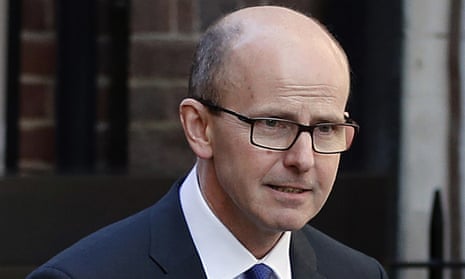Western spy agencies should use intelligence to “pre-bunk” narratives pushed by Russia and other authoritarian states, the head of GCHQ has said while guest editing BBC Radio 4’s Today programme.
Jeremy Fleming, who leads the largest of Britain’s three main intelligence agencies, said on Thursday the war in Ukraine had prompted a significant opening up, in a Christmas broadcast co-produced by a serving spy chief for the first time.
But Fleming – who was interviewing one of his US counterparts, Avril Haines, the director of national intelligence – acknowledged the new public outreach effort had had more impact in western countries than elsewhere around the world.
“You’ve put a lot of effort into getting secret intelligence, but I always think it’s no point collecting it unless you use it,” Fleming said. “The sea change we’ve seen during this conflict of getting the intelligence out there and using it to ‘pre bunk’.”
In the run-up to the war, western agencies issued a series of public warnings, first generally that Russia planned “a multi-front” invasion of Ukraine and later that there was a specific pro-Russian coup plot and the Kremlin planned to fake a “very graphic” video as a pretext for the attack.
However “much of the world” the GCHQ chief admitted “haven’t completely bought into that side of the argument” – reflecting scepticism about western intentions in Russia and countries sympathetic to it.
Fleming is one of this week’s Today programme guest editors, who appear on the show and help select themes and guests. Others include Björn Ulvaeus from Abba and Nazanin Zaghari-Ratcliffe, released by Iran earlier this year.
While it is the first time a serving head of a spy agency has guest edited the programme, in the past the retired MI5 chiefs Stella Rimington and Eliza Manningham-Buller have taken on the role, 11 and six years after leaving service.
During the broadcast, the presenter, Nick Robinson, said it was rare to have an intelligence chief acting as a guest editor but insisted the BBC’s independence was not compromised as a result of the collaboration.
“Let me stress, as ever, the Today programme is in charge of what it is you’re hearing,” Robinson said before introducing Fleming’s interview with Haines.
Haines, the head of the US intelligence community, said her country’s spy agencies had sought, in public, “to counter disinformation that the Russians were putting out” to justify February’s invasion of Ukraine.
It was, Haines argued, a relatively novel approach for the normally secretive spy agencies. “We saw that they were looking to create a pretext for the invasion and we wanted to sort of debunk that and help people understand that this was a false narrative,” she said.
But, Haines acknowledged, “our impact was far greater in the west than it was in other places in the world”. In Russia, “we had basically no impact”, she said, and “we were not that impactful in other countries that already had sort of taken on the narrative of what the Russians were pushing”.
after newsletter promotion
Russia had, Haines argued, persuaded some countries that “the United States is provoking this conflict”.
Robinson visited Cheltenham, the headquarters of GCHQ, Britain’s signal intelligence agency, which specialises in listening in to and analysing phone, email and other communications. It also runs a 24-hour event management centre, to deal with any serious cyber-attack on UK critical infrastructure.
The BBC presenter said while “it feels in many ways like a university campus” he would not be allowed to buy a sausage roll from the onsite Greggs bakery because “I’m not security cleared and I might hear the conversations from people who are”.
The special edition also heard Fleming interview Olympic gold medal winning sailor Ben Ainslie to discuss the “way in which data and sport is colliding” – and culminated in a short interview with the spy chief in which Fleming was asked whether his successor could be a woman.
“Let’s hope so,” the spy chief replied, “that we have a female or indeed someone from an ethnic minority background head of GCHQ. We’ve had neither. There’s time that we show there’s difference at the top of these organisations.”










